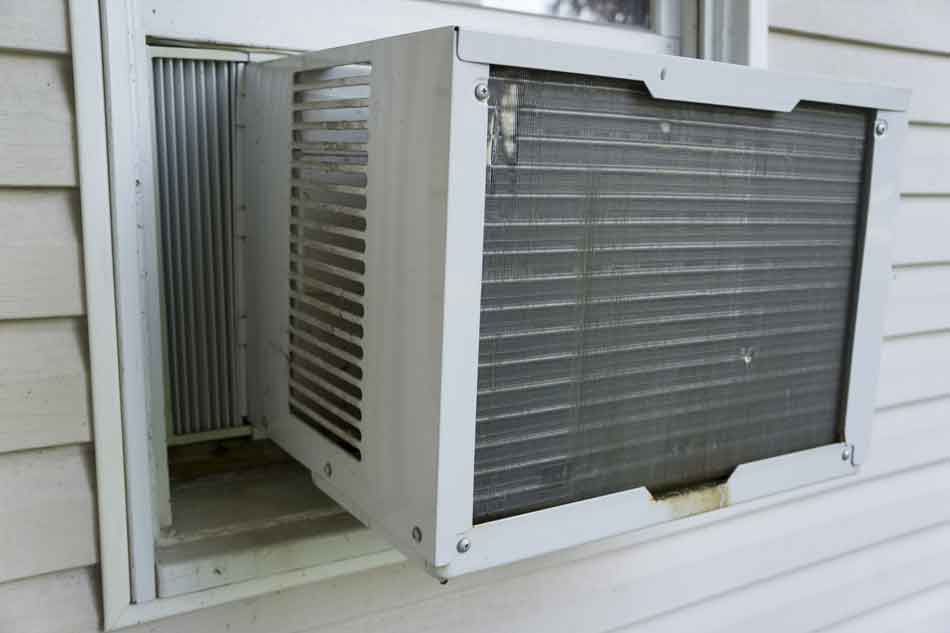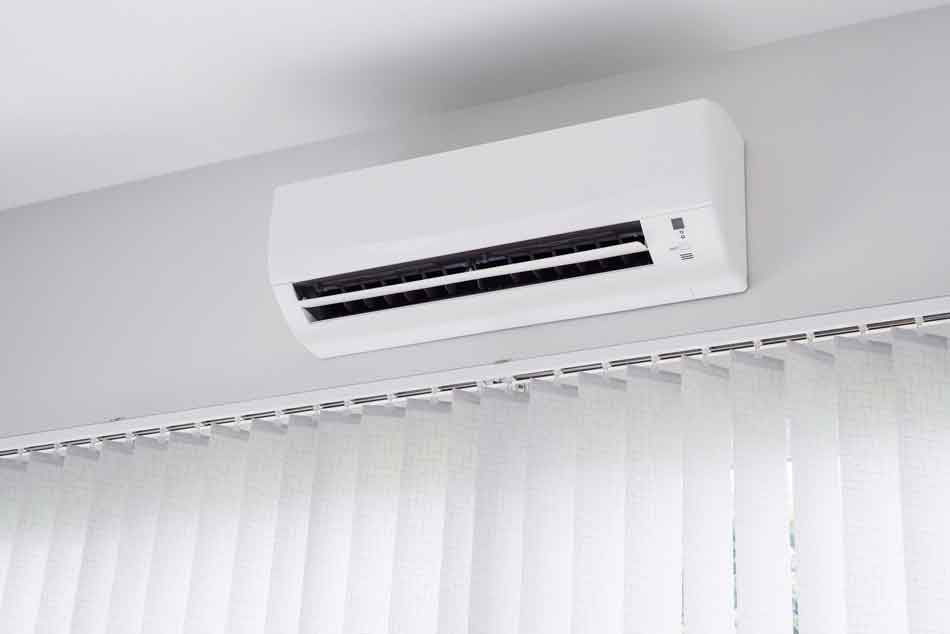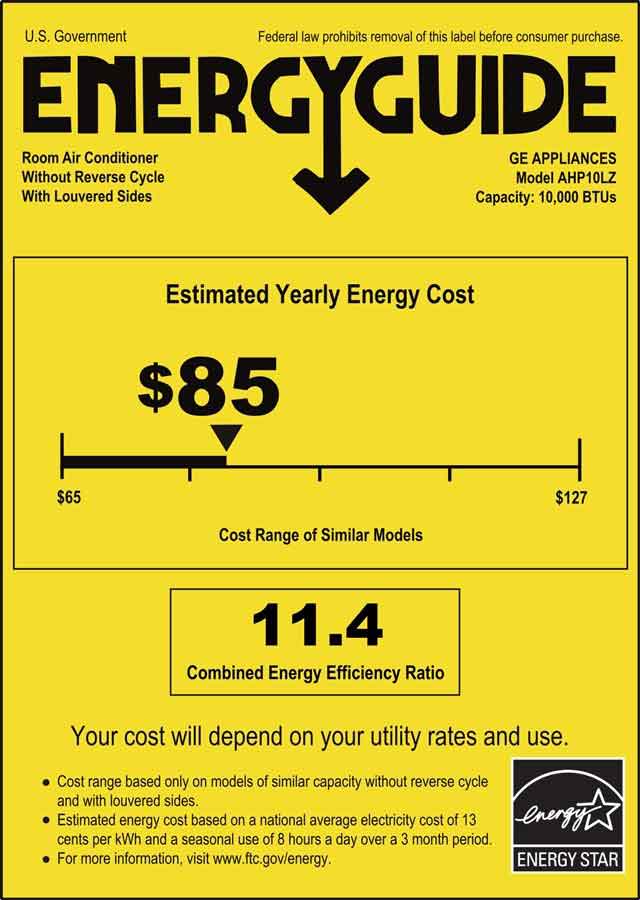Summer heatwaves, poor ventilation, and hot car engines can all make your garage feel unbearably hot.
Even if your garage is well insulated, it might not be enough. Adding air conditioning may be your best option.
But with thousands of options available, figuring out which one is right for you can be difficult.
The best garage air conditioners will be slightly larger than necessary for your space (so it doesn’t work too hard) and uses as little energy as possible. Oh…and one that doesn’t cost an arm and a leg.
That should be easy to find, right?
When I started looking into air conditioning in my garage, I was overwhelmed by all the choices. If that’s happening to you, hopefully, this can help make that decision a little easier.
Who Needs a Garage Air Conditioner?
Like I said at the beginning, not everyone will need an air conditioner in their garage. For most people, a good garage fan is a better option.
However, if you spend a lot of time in your garage AND live somewhere there are long, hot summers, air conditioning might be your best option.
Want to know if air conditioning in your garage is right for you?
I go into all the pros and cons of whether or not you should air condition your garage in another article, but here are some of the highlights.
You should consider air conditioning your garage if you:
- Spend a lot of time in your garage and want it to be comfortable
- Have a garage refrigerator or freezer
- Store dry food or supplies in your garage
- Use your garage as a workshop
Each situation requires you to keep your garage in a comfortable temperature range. The most effective way to do that is with a garage air conditioner capable of cooling your entire garage.
Of course, coverage isn’t the only feature buyers should consider.
How to Buy a Garage Air Conditioner
Choosing the best garage air conditioner starts with a bit of planning and forethought.
There are literally hundreds of different models to choose from. But by considering each of these factors, you can narrow your search and find the right air conditioner for your garage.
Types of Garage Air Conditioners
Air conditioners aren’t one-size-fits-all. There are several types of air conditioning units. While they all emit cold air, they differ significantly in power, size, energy usage, and cooling capacity.
Let’s check out some of the most common types of air conditioners so you can understand their strengths and weaknesses.
Garage Window Air Conditioners
Most of us are familiar with air conditioners that you mount in the window of a room.

Window units are reasonably inexpensive, ranging in price from $150 to $700, with the majority being in the $250-$400 range. For that price, you get around 10,000 BTUs of cooling power, which is enough to cool the average two-car garage, according to EnergyStar.gov.
One drawback to window units is that you cannot open the window and let some fresh air in. The unit will have vents, but it’s not the same. Because it takes up a large chunk of the window, it’ll also cut down on the amount of light it lets in.
A window unit is powerful enough to keep even the sunniest room crisp and chilled. This will probably be your best option if you have a window in your garage.
Portable Air Conditioners
Portable air conditioners are great for small spaces and temperate climates. Because they’re on wheels, they can be relocated to any room that needs extra cooling.

A portable AC unit can range in price from $350 to $600 but aren’t as powerful as their window-unit cousins. To get a similar spec 10,000 BTU portable air conditioner, expect to spend around $500.
Most portable air conditioners have a long tube that vents to the outside, usually through a window. If your garage doesn’t have a window, you’ll need to cut an exhaust vent in your garage door or wall.
Cooling a garage with a portable air conditioner is possible, but that may not be your best option.
Portable air conditioners sit in the no man’s land between a window air conditioner and a mini-split. They could be the right choice if it only gets hot enough to need AC for a few weeks out of the year or if you have a small garage. Otherwise, your best option probably lies elsewhere.
Mini-Split Air Conditioners
A mini-split air conditioner sits in another kind of middle area. Only this time that middle ground is between an off-the-shelf AC unit and a whole-house HVAC solution.

A typical mini-split system will cost between $800 and $2000 and usually requires professional installation. Units around $1000 will put out roughly the 10,000 BTUs we need.
At that price, though, you’re getting a more permanent solution. Let me explain.
Mini-split air conditioners have a compressor unit outside your house, just like standard HVAC systems. The cooling unit sits inside your garage directly on the other side.
The big difference between a mini-split and a whole-house HVAC system is that there’s no ductwork.
That can be a huge plus for most homeowners.
These units are relatively powerful and incredibly durable, but these features aren’t cheap. Mini-split air conditioners are, on average, more expensive than portable units. However, they’re a fantastic option for two-car garages with little insulation or few windows.
HVAC System
Adding a full Heating, Ventilation, and Air Conditioning (HVAC) system to your garage is beyond the means for most of us. I’m including it here in case you’re building a new garage.
A complete HVAC system is custom designed for the building it’s in. It will include ductwork to deliver cool air wherever you need it at the touch of a button.
The cost of an HVAC system can vary wildly, depending on the specifics of the installation. The average cost ranges between $4800 and $9300 for just the system’s components. If you don’t have existing ductwork to pipe into, expect to spend another $3000 there as well. (source)
The air ducts in your home’s HVAC system don’t usually extend to the garage. That’s because most garages aren’t well-insulated. Air can easily escape through cracked windows, open doors, and loose threshold seals.
Also, garages are filled with toxic fumes you don’t want to spread through the rest of your house. Adding your garage to your home’s heating and cooling system doesn’t filter those out. That can actually be very dangerous for your family.
While this air conditioning option is the most expensive, it’s potentially the most rewarding. Adding electrical components, plumbing systems, or HVAC vents to a garage is a fantastic way to raise a property’s value, and it could help a home sell more quickly.
What to Look For in a Garage Air Conditioner
Still here? Great! You probably have an idea of what air conditioning system would work best for your garage.
Now it’s time to narrow it down further and look at some features and specs before you take out your credit card.
Air conditioning units are designed to last for several years. Many can run for decades when properly maintained. You’re making a sizable investment, so choosing a system that fits your needs and budget is essential.
Size (Cooling Capacity)
When we talk about an air conditioner’s size, we’re talking about its cooling capacity.
This measurement is often represented in terms of BTU or British thermal units. Don’t worry. There won’t be a quiz on this later.
In the United States, EnergyStar.gov provides a cheat sheet that shows roughly how many BTUs you’ll need to cool a room.
Because garages aren’t as well insulated as other rooms in your house, I recommend going up one size from this chart.
For example, a 400 sq. ft. garage would need a 10,000 BTU air conditioner, according to that chart. I’d recommend sizing up to a 12,000 BTU air conditioner so you won’t overwork the unit.
Choosing the right size garage air conditioner for your space is likely the most critical factor besides type and affordability.
Price
As we’ve seen above, air conditioners vary wildly in price, depending on the type, capacity, features, and manufacturer.
The least expensive types of air conditioners tend to be portable units and smaller window units. Mini-split or ductless air conditioners and HVAC systems are the priciest. Still, they’re also the most powerful and customizable options.
For most portable or window-unit air conditioners, expect to spend between $300 and $500. Some may be more expensive than that. You may also get lucky and find a good one on sale for less. However, $300-$500 is a good ballpark.
It’s worth noting that, to an extent, you get what you pay for. The least expensive options tend to be the least powerful and least effective.
Energy usage also impacts the unit’s overall cost, but that’s so important that it deserves its own section.
Energy Usage
Air conditioners aren’t just a one-time cost. They also cost money every time you turn them on. So looking at a unit’s energy usage and potential savings is a good idea.
Otherwise, you might get sticker shock and pay an outrageous electricity bill every month.
In the US, every electrical appliance is sold with an Energy Guide sheet (those yellow cards). That will tell you roughly how much each unit will cost to operate.

Take that cost figure with a massive grain of salt! It’s simply an estimate, and you may spend much more or much less, depending on how you use it.
What they ARE good for is comparing two similar units.
For example, say you’re looking at two 12,000 BTU air conditioners. If one costs $85 per year to operate while the other costs $95, that may help make your decision easier.
Also, be sure to choose a unit that is ENERGY STAR certified. That means it’s one of the most efficient units in its class. You can see the whole list here if you don’t see that emblem on the product description.
Noise
Every air conditioner makes some amount of noise. The higher the fan setting, the more noise it will make.
The average air conditioner puts out between 50-60 dB when the compressor is running. Higher fan speeds will sometimes push that to 70 dB or more.
For comparison, 60 decibels is the same as normal conversation. So you may have to speak a bit louder if you’re sitting next to a running garage air conditioner.
If low noise is a significant factor for you, that may eliminate some types of air conditioners right off the bat. Both portable and window unit air conditioners are in that 50-60 decibel range. Even an ultra-quiet air conditioner like the LG LW1019IVSM still pumps out 44 dB.
However, mini-split air conditioners are much quieter, usually around 20 decibels. That’s because the compressor (the noisy part) sits outside your home.
Ease of Use
Air conditioners with lots of nifty features may seem like the best bet, but simple units may be the smarter option. Not only do complex air conditioning units cost more than a simpler model, but they generally consume more electricity too.
At its core, a garage air conditioner only needs two functions: an on\off switch and a way to adjust the temperature.
Be careful when looking at an air conditioner with a lot of extra features. I often get distracted by bells and whistles and usually buy more than I need.
Ultimately, you want something that does what you need and is simple to operate. Additional features may be nice, but they’re usually not ‘must-haves.’
Maintenance
No matter what type of garage air conditioner you have, it will need a little TLC occasionally.
Common AC maintenance tasks include:
- Cleaning and replacing unit filters.
- Checking the evaporator coil for ice and dirt.
- Ensuring that the unit is on a level surface.
Typically, the larger the air conditioner, the more maintenance it will require. Outdoor air conditioning compressors tend to collect various yard debris, which can be incredibly challenging to maintain. Compact, portable units are the easiest to care for and keep clean.
Keeping up with scheduled maintenance will help your AC unit last longer and improve the air quality in your garage.
Frequently Asked Questions
There’s no shame in asking questions! Below you will find answers to some of the most frequently asked questions concerning garage air conditioners.
How Do You Cool a Windowless Garage?
I really envy people who have a window in their garage. It’s a lot easier to get air moving around. Plus, you can buy an inexpensive window air conditioner for your garage.
Boom. Problem solved.
You can still cool your garage down if you’re not that lucky (like me).
First, try to seal up any gaps around your garage door. Check any seals or caulking you find and replace them if necessary. This helps stop air leakage and seal cold air inside, reducing strain on air conditioning units and fans.
Then look at adding insulation to your garage door and walls. Even insulating your garage ceiling will help keep the heat where you want it.
Not having windows in your garage means you must work harder to cool your garage space. For more ideas on how to keep a garage cool, I have an article with several tips and tricks you can check out.
Why Do Garages Get So Hot?
When your mancave, workshop, or parking spot transforms into an unwanted sauna, there are a handful of usual suspects.
These most common heat producers include:
- A recently parked car
- Lots of sunlight
- Poor insulation (including garage doors)
- Garage windows
- Clutter
- Active electronics
- Extreme weather
If you can identify what’s causing your garage’s sweltering temperatures, you can attack the source, not the symptoms. A garage full of clutter will have reduced airflow, which can keep temperatures high.
The most common culprit is your car’s engine. It can stay warm for an hour after you park it. During that time, it’s also heating up the rest of your garage.
Occasionally, the reason your garage is so hot is more complex. It’s best to contact a professional air conditioning specialist for advice and assistance in those cases.
Can Insulating a Garage Help Keep It Cool?
In a way, yes.
When you insulate an area, you don’t make it hotter or colder. You make it harder for the hot air to move where you don’t want it.
Think of insulation as a gigantic thermostat padlock. The more insulation you have, the stronger the padlock.
Ever feel a draft when you’re standing next to a cold window? The heat is transferring through the window. The wall beside it isn’t as cold because it has better insulation to keep the heat inside.
Before actively cooling your garage, you should consider adding insulation. Start with the garage door (a simple garage door insulation kit works well here), then move on to insulating your garage walls.
Eventually, you’ll end up with a well-insulated garage perfectly attuned to your needs, lifestyle habits, and preferences. Insulation can reduce the strain on an HVAC system and help lower your electric bill.
Insulation is a cool way to stay comfy.
Will a Dehumidifier Cool Down a Garage?
Actually, a dehumidifier will increase the heat in a room. You still might want one for your garage anyway!
That’s because a dehumidifier will remove moisture from the air, tricking our bodies into feeling cooler.
It’s like the difference between a hot day in Florida and a hot day in Arizona. Weather.gov has a nifty calculator that you can play around with to prove it.
An 80° F day with 20% relative humidity only feels like 78°. However, that same 80° F day with 80% relative humidity feels like 84 ° F.
You’ve probably experienced that yourself.
You won’t need a separate dehumidifier if you air condition your garage. If you choose not to go the garage air conditioner route, check out my article to help you choose the right garage dehumidifier.
You may not be able to lower the overall temperature. Nevertheless, you can make it a lot more comfortable in your garage.
Wrapping It Up
Now that you know what features to look for in a garage air conditioner, you can confidently begin browsing for the ideal model.
It’s important to decide what air conditioning unit is right for you before moving on to cooling capacity, price, or energy usage.
The best garage air conditioner for you depends on your garage size, budget, and preferences.
